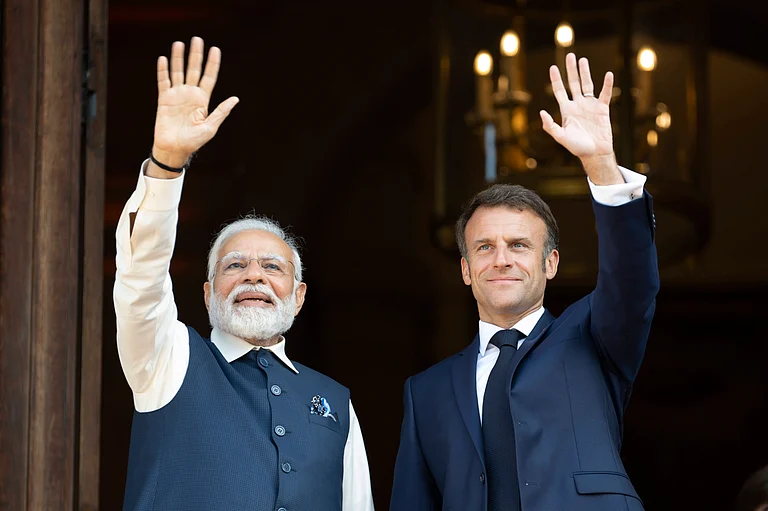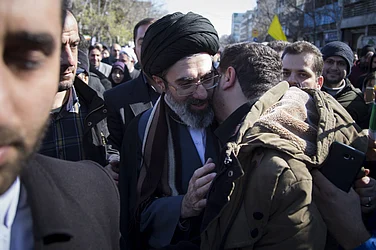France's government on Wednesday ordered the dissolution of extreme right and radical Muslim groups, four days before the first round of high-stakes legislative elections that may see a surge in support for political extremes.
Snap national elections called by pro-business moderate President Emmanuel Macron have plunged the country into a hasty and disorderly electoral race. Immigration, France's retirement age and taxes emerged as top points of contention as the prime minister and two potential challengers for his job held a televised debate Tuesday night.
Interior Minister Gerald Darmanin announced Wednesday that the government ordered the dissolution of multiple extreme-right and “radical Islamist'' groups. A series of decrees announcing the shutdown cited the risk of violence.
The groups affected include the GUD, a group known for violence and antisemitism whose members have provided support for far-right political leader Marine Le Pen in the past.
Le Pen's National Rally party is leading all polls ahead of the two-round elections June 30 and July 7, and Macron's centrist alliance is lagging badly. However, the outcome remains highly uncertain due to the complex, two-stage voting system and potential political alliances.
In the TV debate, young and fast-rising National Rally president Jordan Bardella renewed his proposal to abolish free health care for foreigners and toughen regulations around the acquisition of French nationality.
But his proposal to prevent dual citizens from accessing certain “strategic” state jobs in particular attracted the ire of Prime Minister Gabriel Attal, who said it revealed the true objectives of a party that has long been tied to xenophobia and racism.
“The message you are sending is that when we are dual citizens, we are half-citizens, we are not real French people,” Attal said.
Attal suggested the real targets of this measure are not dual citizens with high-level positions, when he said Bardella had a Franco-Russian representative in the European Parliament, who sits at the Committee on Foreign Affairs on security and defense issues.
Bardella has softened many of the party's hard-line positions, and was put on the spot during the debate over another key issue, the age of retirement, which Macron's highly contested reform last year raised from 62 to 64, prompting months of protests and weakening his government.
The National Rally backs the idea of setting back the retirement age to 62, but Bardella said 42 years of work would be needed to for entitlement to a full pension, de facto raising the retirement age for those who started working later in their 20s.
This is the first time since the Nazi occupation during World War II that France could elect a far-right government. Opposition parties on both sides of the political spectrum have been scrambling to form alliances and field candidates.
The elections were called by Macron earlier this month after his party suffered a crushing defeat by the far right in the European Parliament election.
Eric Bompard, of the France Unbowed party, part of a new coalition of far-to-center left parties, also came after Bardella's economic program and his proposal to lift taxes for people under 30 years of age.
Citing economists, Bompard said the National Rally's program would contribute to making the rich richer, at the expense of the poorest 30% share of the population, while Attal accused the 28-year-old Bardella of personally benefiting from the measure.
"Why would a 31-year-old laborer pay taxes, while a 29-year-old consultant or trader would stop paying?” Attal asked.























